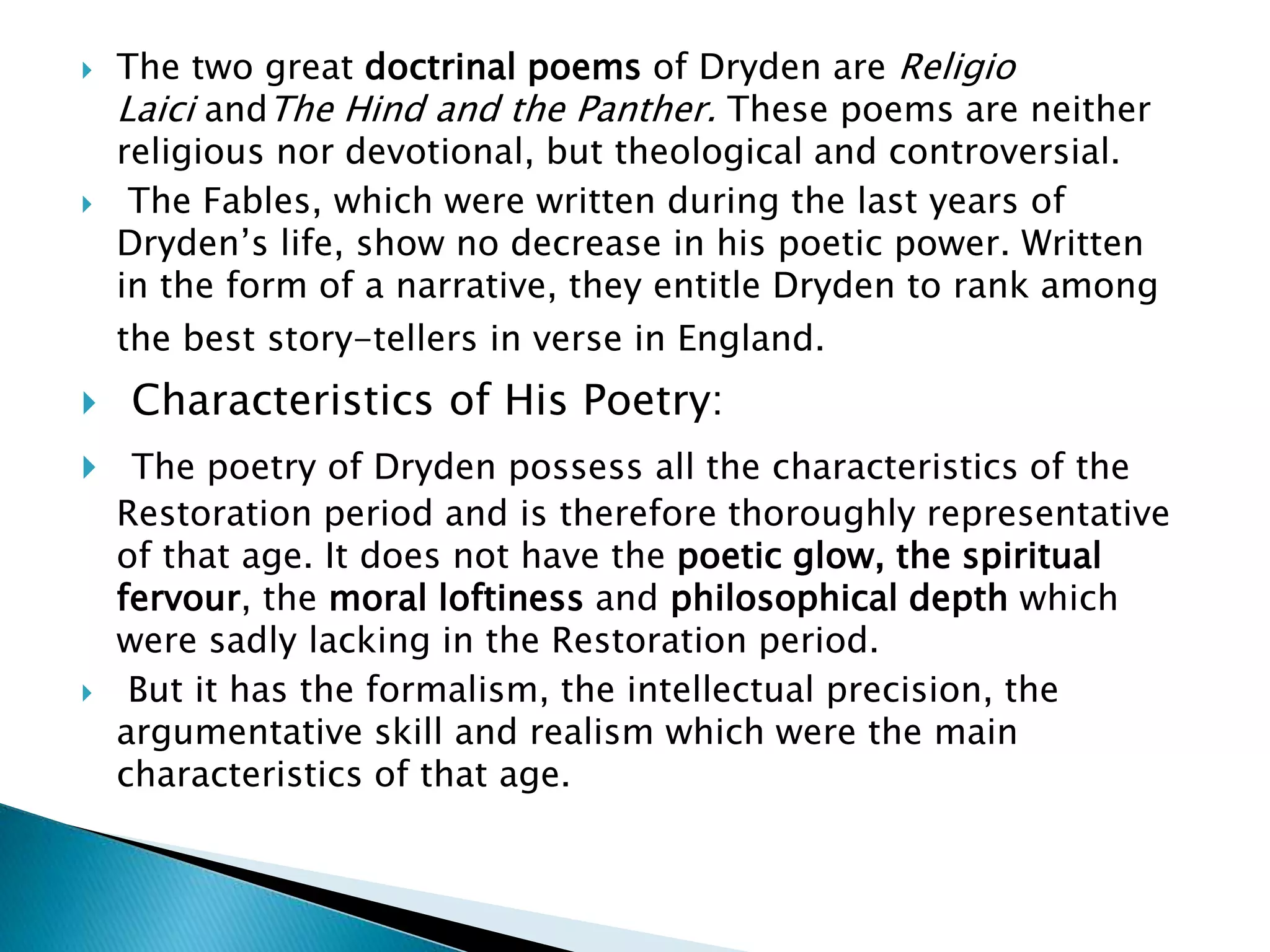After the Restoration of the monarchy in 1660, English literature moved away from Puritan ideals towards more worldly concerns. The Age of Dryden was dominated by John Dryden, who perfected the heroic couplet in poetry, drama, and prose. Restoration drama featured comedies of manners that satirized the aristocracy, while tragedy focused on heroic themes. Prose evolved to be more precise and suited to scientific, historical and philosophical topics. John Bunyan's The Pilgrim's Progress was a masterpiece of simple allegorical English prose.



















